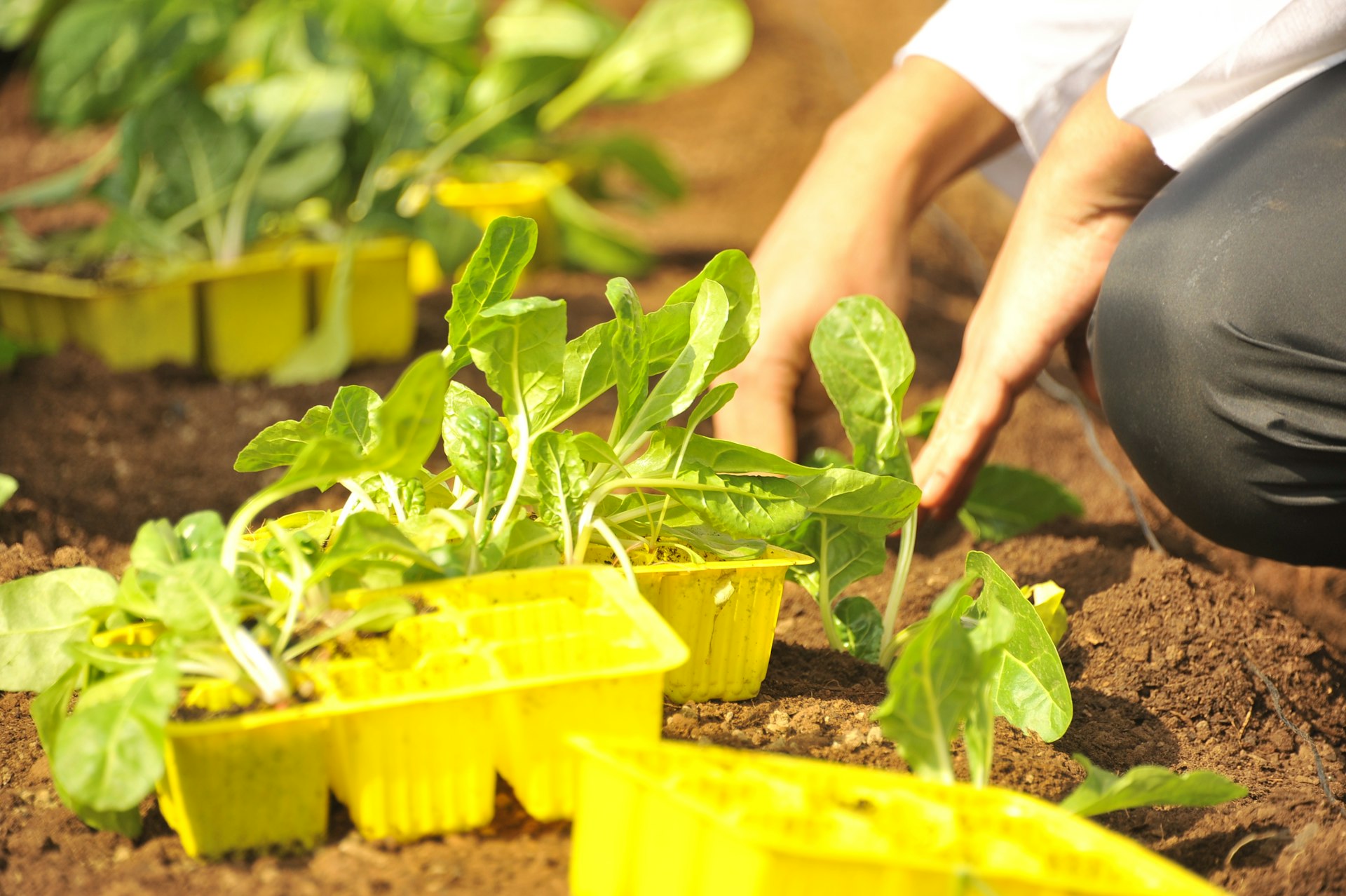Unlocking a Sustainable Future: Comprehensive Education in Food Sustainability


Photo by Ngobeni Communications on Unsplash
Introduction: Why Food Sustainability Education Matters
Food sustainability education is rapidly transforming the way individuals, organizations, and communities approach the challenges and opportunities of the modern food system. As global populations grow and environmental pressures intensify, it is crucial to develop skills and knowledge that ensure food production, distribution, and consumption are environmentally responsible, socially equitable, and economically viable. Education in this field equips learners to address complex issues such as climate change, resource depletion, food insecurity, and social justice by integrating scientific knowledge, policy understanding, and practical skills.
Understanding Food Sustainability: Key Concepts and Benefits
At its core, food sustainability education explores the interdependent relationships between agriculture, the environment, and society. Programs often cover topics such as regenerative agriculture , organic farming , food justice , supply chain management , and policy analysis . These areas are vital for understanding how food systems can be designed and managed to conserve natural resources, reduce greenhouse gas emissions, and enhance social equity.
Graduates of food sustainability programs are equipped to:
- Develop strategies for efficient and responsible resource use in agriculture and food production
- Implement business models that support local economies and fair trade
- Advance food policies that prioritize health, sustainability, and access
- Lead initiatives in community-supported agriculture and urban food systems
- Understand the impact of climate change on food security and adapt accordingly
By learning these skills, individuals gain the ability to create robust solutions to food system challenges and help drive the transition toward more resilient and just food economies [1] [2] .
Paths to Food Sustainability Education: Programs and Credentials
Food sustainability education is available through a range of academic and professional pathways. Here are some options to consider:
1. Graduate Degrees and Certificates
Many universities offer specialized degrees and certificates in sustainable food systems. For example, Unity Environmental University provides a
Master of Professional Science in Sustainable Food Systems
that immerses students in the complexities of food production, distribution, and policy. This program can be completed in as little as one year of full-time study or at a flexible pace for part-time learners. The curriculum covers topics such as organic farming, regenerative practices, community-supported agriculture, and food policy analysis. Real-world case studies and projects are central to the experience, helping students develop skills in systems thinking and advocacy
[1]
.
Harvard University’s Extension School offers a
Professional Graduate Certificate in Sustainable Food Systems
, which requires four courses and provides practical approaches to modifying food production practices, improving resource efficiency, and developing robust business models throughout the food supply chain. The curriculum is aligned with the United Nations Sustainable Development Goals, ensuring a globally relevant education. Tuition is comparably affordable, and students may select from a variety of courses each term
[2]
.
2. Undergraduate Certificates and Minors
Arizona State University offers a
Certificate in Sustainable Food Systems
that is open to students across a range of majors, or as a stand-alone credential. The program builds analytical skills in areas such as agricultural design, urban planning, policy, and marketing. Students are encouraged to tailor their courses to their specific interests and career goals, and the transdisciplinary approach ensures a broad, practical understanding of food system sustainability
[5]
.
Prescott College provides a
Certificate in Sustainable Food Systems
grounded in the Food & Agriculture Organization’s 10 Elements of Agroecology. This 20-credit certificate is open to undergraduates from any major and emphasizes hands-on learning in regenerative agriculture, food justice, and community food systems. Graduates have gone on to become food system coordinators, climate advocates, farm managers, policy researchers, and more
[3]
.
3. Specialized Master’s Tracks
The University of Colorado Boulder’s
Sustainable Food Systems
specialization within the Masters of the Environment program provides students with a comprehensive view of the food supply chain, from production to waste management. The program emphasizes the interconnectedness of science, policy, and ethics, preparing graduates to lead sustainability initiatives in diverse sectors and geographies
[4]
.
How to Access Food Sustainability Education Programs
To enroll in a food sustainability education program, it is important to:
- Research Programs: Begin by exploring university websites, extension schools, and professional organizations for programs that match your interests and career goals. Look for degrees, certificates, or specializations in sustainable food systems, agroecology, or related fields.
- Understand Requirements: Review program prerequisites, curriculum structure, and application deadlines. Many programs are open to students from diverse academic backgrounds, but some may require prior coursework or professional experience.
- Evaluate Cost and Financial Aid: Tuition typically ranges by institution. For instance, Harvard Extension School’s certificate costs $3,440 per course (2025-26 rate), with a total of four courses required [2] . Many universities offer scholarships, tuition assistance, and flexible payment options. Contact the admissions or financial aid office at your chosen school for details.
- Apply: Complete the application process as outlined by each institution. This may involve submitting transcripts, letters of recommendation, and a personal statement. Be mindful of deadlines; for example, Prescott College’s next on-campus certificate cohort starts August 19, 2025, with an application deadline of August 1, 2025 [3] .
- Seek Advice: If you need personalized guidance, contact the admissions office or program concierge. Many programs provide advisors who can help you develop a study plan and navigate the admissions process [1] .
For those unable to find a suitable program, consider searching for terms such as “sustainable food systems certificate,” “food sustainability degree,” or “agroecology program” through official university websites or professional food system organizations.
Real-World Applications and Career Opportunities
Education in food sustainability opens doors to a broad array of careers. Graduates work in roles such as:
- Food system development coordinators and advocates
- Farm and garden managers
- Nutrition educators and policy researchers
- Urban agriculture specialists
- Supply chain analysts and sustainability consultants
The demand for professionals skilled in sustainable food systems is rising in sectors including government, non-profits, research institutions, private companies, and community organizations. Many programs provide hands-on experience and direct engagement with local food entrepreneurs, enhancing employability and impact [4] .
Practical Steps to Advance in Food Sustainability
Beyond formal education, you can further develop expertise by:
- Volunteering with community gardens, food banks, or local farms
- Attending workshops, webinars, and conferences on sustainable agriculture
- Connecting with professional associations such as the Sustainable Agriculture Research & Education (SARE) program or local extension offices
- Staying informed on policy developments and scientific research through reputable organizations like the Food and Agriculture Organization (FAO) and the United States Department of Agriculture (USDA)
If you are seeking to launch a project or initiative, consult with faculty, extension agents, or local sustainability offices for mentorship and support. Many universities also provide networking events and career services tailored to the food systems sector.
Key Challenges and Solutions in Food Sustainability Education
While food sustainability education offers immense value, students and professionals may face challenges such as:
- Balancing Interdisciplinary Content: Food sustainability draws from many fields, which can be overwhelming. Seek programs with strong advising and clear curricular pathways to manage this complexity.
- Hands-On Experience: Not all programs include practical components. Prioritize those with internships, fieldwork, or project-based learning, or supplement your education with volunteer work and internships.
- Cost and Accessibility: Tuition and fees vary. Research scholarships, assistantships, and online learning options to find a program that fits your budget and schedule.
- Keeping Up with Evolving Knowledge: The field evolves rapidly. Stay engaged by joining professional organizations, subscribing to industry publications, and participating in continuing education.
Alternative Pathways and Additional Resources
If a degree or certificate is not feasible, there are alternative ways to build knowledge and skills:

Photo by Khalil Radi on Unsplash
- Audit free online courses from reputable platforms (such as edX or Coursera) in food systems, agroecology, or sustainability
- Engage with open-access publications and research from organizations like the FAO or USDA
- Connect with local food policy councils or sustainability task forces for experiential learning
To explore local opportunities, consider searching for “community food systems workshops,” “urban agriculture classes,” or “sustainable farming training” through city or county extension offices, local colleges, or food advocacy organizations.
Conclusion
Food sustainability education is a dynamic field that offers actionable pathways to addressing some of the world’s most significant challenges. Whether pursuing a formal degree, certificate, or community-based learning, you can develop the skills and networks needed to make a substantial impact in the food system. For more details or to get started, reach out to the admissions or advising offices of featured programs, or search for official university and professional organization offerings in your region.
References
- [1] Unity Environmental University (2025). MPS in Sustainable Food Systems overview.
- [2] Harvard Extension School (2025). Sustainable Food Systems Graduate Certificate.
- [3] Prescott College (2025). Certificate in Sustainable Food Systems program details.
- [4] University of Colorado Boulder (2025). Sustainable Food Systems specialization overview.
- [5] Arizona State University (2025). Sustainable Food Systems Certificate information.






